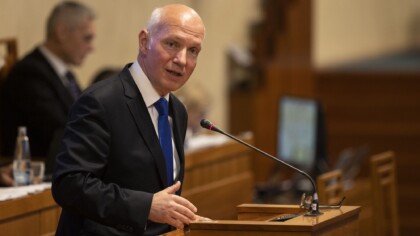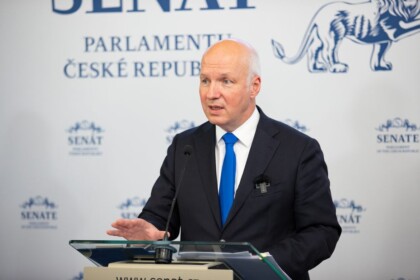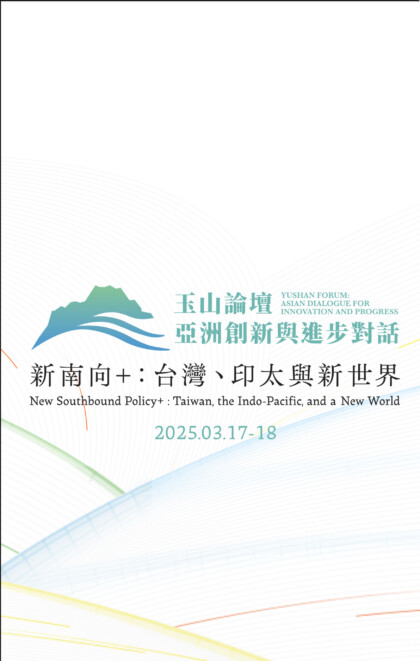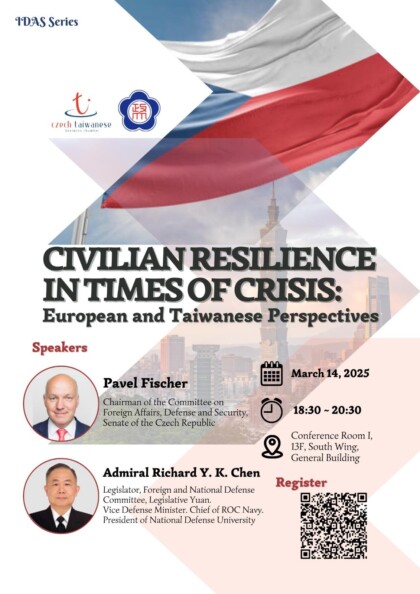Address to the members of the Harvard Law School Association of Europe
Uncompromising Values: The Line We Won’t Cross with China (and Ourselves)
Projevy|12.5.2024
Harvard University has a distinguished history and is one of the best universities not only in the United States but also in the world. Its core values are veritas, or truth, as well as systematic education, excellence in scholarship and learning, and ultimately a commitment to preparing leaders who can make a positive impact on the world. In today’s world, where there is no shortage of diverse challenges, belonging to a prestigious institution like Harvard is also a commitment. You are all graduates of the Law School. So let me begin your meeting in Prague with a few remarks.
First, welcome to the Senate of the Parliament of the Czech Republic. The place where laws are made and where we debate the great issues of our time.
Respect for the law and respect for the rule of law is a public good. It is in our common interest to respect the law. As lawyers, whether you work in business, in corporations, in public administration or in international institutions, you have an important role to play.
It was after the COVID-19 pandemic. In France, there was a debate in the lower house of parliament on the measures taken in response to the spread of an infectious disease. In the Chamber of Deputies of France, yes, the country that proudly calls itself the home of human rights, a senior official responded. It was the Minister of Health. When asked who or what had inspired them to introduce anti-pandemic measures to protect public health, he replied without hesitation: the People’s Republic of China.
I was astonished by his answer. It was said as if it were nothing. It was as if he did not want to see the difference between France and Communist China. That is to say, France, a country where a self-respecting citizen can oppose public authority, and this principle shapes the entire structure of constitutional institutions. In Communist China, on the other hand, the form of government is such that it cannot exist without monitoring every citizen 24 hours a day, seven days a week. The complete, total control of the population, the repression and the lack of accountability create a completely different relationship to that which exists in the democratic states of Europe. Here free citizens decide, there the Politburo decides.
Respect for the law and the rule of law is the foundation of our security and prosperity. This is true not only in the Middle East, where we are concerned by the spiral of increasing violence and the extremely fragile situation. And yet I am convinced that without respect for international law, the situation there will not improve, nor will the conditions for peaceful cooperation among all the actors.
We see the same in the case of Ukraine. There, Russia, in fundamental violation of its own commitments and in defiance of the UN Charter, has unleashed the biggest conflict since the Second World War. Moreover, every time the Russian Federation has been asked to allow the issue of aggression against Ukraine to be put on the agenda of the UN Security Council, Moscow has made sure that this item is not put on the agenda at all. However, we are well aware that Russia, as a permanent member of the UN Security Council, has voluntarily assumed a great responsibility. Namely, that it will hold the fundamental principles of the United Nations in high esteem and abide by them in an exemplary manner.
But Russia does not act alone in the UN Security Council. It has a number of allies. And they are helping to block it, so that the UN cannot fulfil the mission for which it was founded. Similarly, we see the PRC, for example, blocking the Human Rights Council in Geneva. There, again at the UN, China managed to block the special report of the UN High Commissioner for Human Rights at a time when his work concluded that crimes against humanity were being committed on Chinese territory. Once again, the work of the UN has been blocked simply because a major member state, a permanent member of the Security Council, does not want the UN to do its job.
We are meeting in the Senate of the Parliament of the Czech Republic. It was from here that the Speaker of the Parliament of Taiwan addressed us. It was in July 2022 when he visited the Czech Republic. In his speech he admonished and warned us to pay special attention to the plans of the People’s Republic of China and the very nature of this regime.
I have to say that it was very powerful to hear a representative of a parliament that was elected in free and fair elections speak in this way. I do not know about the rest of you, but I do not speak Chinese. I do not understand the written text. Moreover, I live in Europe, so I do not have access to the Chinese documents published by the Chinese Communist Party, I can only read the English version published for the purposes of public living abroad, outside of China. But because we consult experts, and because I have repeatedly had the opportunity to compare the texts published in Chinese with their English versions, and because I have sometimes even been present at the events they are supposed to describe, I can responsibly say that China says something different to the outside world than it does at home.
I do not speak Chinese. But I do trust my friends. And when one of the highest representatives of Taiwan, the Republic of China, warns us here, from this place, about communist China, I have many serious reasons not to take his words lightly. For, as a close neighbour, he must have a wealth of experience.
Yes, it was not so long ago that we watched on live television as the Chinese Communist Party decided to smash the constitutional order in Hong Kong, a territory that had always enjoyed a high degree of autonomy. And where there was a separation of powers and where they had their own parliament and their own laws. But Beijing has chosen to ignore that. It violated the international obligations that it voluntarily took on. And so, instead of Hong Kong’s legislators, elected in a free and fair election, the future of Hong Kong’s citizens was decided by the Communist Party Standing Committee in Beijing. The State Security Law that came into force was introduced regardless of what the local parliament and local citizens thought.
In this case, we see that there is more than one way of making laws and applying the law. And that there is another way besides respect for the rule of law and out of respect for the law. Namely, a way in which the law does not serve the citizens, but is part of the struggle. Indeed, the English term lawfare suggests very well that instead of the rule of law, we have a struggle, a war, in which legal norms are abused in contradiction to the fundamental principles on which our freedom and democracy and prosperity are based.
This is a truly global phenomenon. Indeed, we should not overlook the fact that what Beijing has imposed in Hong Kong may be just a calling card. Just a first example. Because if we listen to what the official representatives of Communist China are saying, we cannot have missed it. Namely, that China is trying to impose a new world order. I do not think we need to question the principles on which this new order is based. Above all, it will certainly create the conditions for the interests of the Communists in China to remain paramount, regardless of the interests of others.
Communist China has the ambition to impose a new world order. We should be aware of this, talk about it and act in accordance with our own interests. Otherwise, we have no chance in this conflict.
Private companies have a special position in this context. Of course, their primary objective is to make a profit. Otherwise they would not be fulfilling their basic mission to their shareholders and owners. But the search for profit at any price, often very short-term profit, can come into tension with the interests of our societies and our states. We know that China is challenge for our values, interests and our security (cf. NATO summit conclusions, 2022). To give an example. If a private company manages to gain market share in Communist China and make huge profits, many times higher than anywhere else in the world, there may well be hidden costs. We do not talk much about them, but we should be able to name them.
For example, this company happens to have its intellectual property and patents stolen. Where were these patents born and where did they come from? For example, in a country in Europe where high levels of social security, creative industries, high levels of education, or public subsidies and contributions have created such favourable conditions that the results of this company are not only based on its private efforts and the genius of its managers, but that they grow out of the efforts of the whole community that has contributed to the success of this company. It seems reasonable to assume that just as we expect citizens to be loyal to their states, we should expect the same loyalty from private actors and private companies. Otherwise, we could actually weaken the position of our European states. And then we should not be surprised if Europe finds it difficult to compete or to defend itself adequately against predators. Security matters. And we know that without taking responsible decisions, we could undermine our security and prosperity.
Some values are simply not for sale. And we should not stand idly by. And that there are a number of actors who are trying to sell – often far below cost – even what we should be keeping.
These things need to be talked about, and talked about loudly. And before it is too late. Of course, you will be right if you argue that private companies or entrepreneurs are bound by secrecy. And that therefore they cannot speak out on these issues. Similarly, media companies cannot afford to publish critical articles about the threat posed by the growing influence of Communist totalitarian China. Understandably so, since advertising revenues are often so important to the media’s bottom line that we should not be surprised. Nor is it surprising that even European governments are unwilling to check China’s interests. They are responsible for public goods, they may have promises of new jobs, or they may be under pressure from big business. But the ones who can talk are members of parliaments. They have immunity and can afford to name the problem.
And if anyone tries to silence them – by saying you are disturbing the good relations between Prague and Beijing – just look around the world. Similar concerns are being expressed by fellow MPs and senators in Japan, Australia, New Zealand, but also in Sweden or Canada. In short, it is in our vital interest – as parliamentarians – to compare developments. If we do, we will conclude that this is a global attack on parliamentary democracy. I am convinced that the sooner we address this globally, the better for us. There is no time to lose.
I mentioned that, as a senator, I am in contact with my colleagues in various parliaments around the world. But parliaments alone will not save the day. We need to involve civil society actors. We need individuals and whole companies to help us encourage our governments not to fall asleep at the switch.
And that is where I turn to you, the members of the Harvard Law School European Alumni Association. You are connected, you have the network, the knowledge and the contacts. You know the importance of respecting the law and the rule of law. You know that there are values that are not for sale. And you have to see for yourself how serious the situation is. We need your help. That is why I am pleased that you have chosen Prague for your meeting, and that the Senate of the Parliament of the Czech Republic is able to offer you hospitality. I look forward to our discussions. And I wish you all a pleasant stay.



